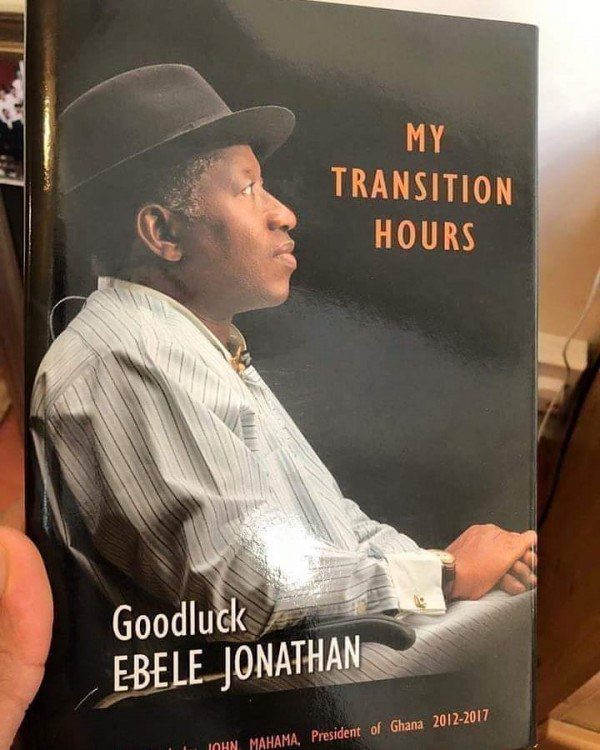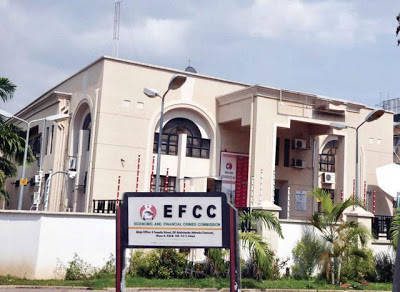Life And People
Goodluck Jonathan and the Chibok Girls Affair -By Majeed Dahiru

Expectedly, the book, My Transition Hours written by former president Goodluck Jonathan, which was publicly presented on November 28, the day he turned 61, has generated a lot interest within and outside Nigeria. The book is essentially a brief narration of events before, during and after the historic 2015 elections by the central character in the plot. By no means, an autobiography, Jonathan’s My Transition Hours mainly focuses on issues surrounding the 2015 elections by clearly identifying certain factors that decided the course of events against his re-election bid. These include the power struggle within then ruling PDP over the rotation of the presidency between the north and south, resulting into a murky politics of ethno-geographic and religious intrigues. Contrary to his entrenched perception by majority of his countrymen as a weak leader, who was unable to tackle corruption and insecurity effectively, Jonathan gives an insight, in this new book, into his efforts in these regards.
No doubt, the Boko Haram insurgency and the unfortunate incidence of the abduction of the Chibok schoolgirls marked a major sour point in the Jonathan presidency. However, reading through the fourth chapter of Jonathan’s My Transition Hours, reveals he wasn’t so “clueless” about the security situation, neither did he fail to act on time to rescue the Chibok girls. Jonathan gives a brief synopsis of the insurgent group, its source of funding and links to the Islamic State (ISIS). In fact, the Jonathan administration acted before time to prevent the abduction of the schoolgirls by issuing a security advisory for students to be evacuated from risk-prone areas to safer locations. In a letter dated March 12, 2014, addressed to His Excellency Kashim Shettima, the executive governor of Borno State by the then supervising minister of education, Nyesom Wike, stated the urgency that “candidates in the federal unity schools be assembled in the respective state capital where they are to sit for the examination in safe locations. You are please enjoined to make contingency arrangements for candidates from public and private schools in your state to sit the examinations in safe locations.” For reasons that have remained shrouded in mystery, the governors of Yobe and Adamawa State complied with this advisory, with the exception of the Borno State governor. This incidence was to go a long way in shaping mutual suspicion and spinning a web of conspiracy theories that were weaponised by the then opposition coalition, leading to the heaping of global opprobrium on the Jonathan administration and eventually resulting in his political defeat and loss of power.

Whereas he took responsibility for the incidence of the abduction of the Chibok girls as president and commander-in-chief on whose table the buck stops, as clearly stated on page 31 of the book, Jonathan nevertheless lamented the uncooperative attitude of the Borno State governor and the political leadership of the Muslim north in general, which was still smarting from an intense power struggle within the Peoples Democratic Party (PDP) in the build-up to the 2011 presidential election. For violating the PDP power rotation arrangement and taking the turn of the north, Jonathan faced a political revolt in the most populous part of Nigeria to such an extent that all his developmental efforts in the north, including his effort to combat the Boko Haram insurgency, was met with a cold stone disposition.
Under this tense atmosphere of hate and mistrust, all hands were not on deck to tackle the problem of the Boko Haram insurgency. If Jonathan was not being blamed for not doing enough to curtail the excesses of the terror sect, he was being verbally pummelled by the political leadership of the affected region for his hard military instance, which they condemned as punitive. In this statement by the then publicity secretary of the All Progressives Congress (APC), Alhaji Lai Mohammed, in reaction to the Chibok girls’ saga, “The same government that is apparently behind the activities (Boko Haram’s activities) had bluntly ignored wise counsel and said it will never negotiate their release,” it would seem that the opposition tacitly implied that Jonathan as behind the Boko Haram insurgent group as a ploy to decimate the population of the north and reduce its democratic demography. Added to this was a conscious attempt to obscure the true nature, origin, motive and mode of operation of the Boko Haram insurgents by describing them as “non-Muslims”, whose actions “were far from Islam”. By living in denial, those who should know better left Jonathan as bewildered as the rest of non-Muslim Nigeria, as he pondered this question on page 31 of his transition hours thus: “so, who or what is Boko Haram?” As a result of this toxic cocktail of conflicting narratives, Jonathan may have been convinced that the entire Boko Haram insurgency, including the abduction of the Chibok school girls, was a carefully choreographed terror franchise by his political opponents, calculated to bring down his government. If Boko Haram insurgents are not Muslims, then they must be agents of political forces of regime destabilisation.
The recent massacre of officers and men of the 157 Task Force Brigade of the Nigerian Army stationed in Metele village of Guzamala local government area of Borno State, in numbers believed to exceed one hundred, jolted the Nigerian people into a rude awakening to the reality of the seemingly intractable Boko Haram insurgency. Three years after the Jonathan administration, the Boko Haram insurgency has not only resurged but has taken the fight to the Armed Forces, away from soft targets, and thereby laying bare all conspiracy theories as mere fallacies. The fundamental reason for the unending Boko Haram insurgency is the overt politicisation of the crisis to the detriment of Nigeria’s national security. Whereas Boko Haram is not Islamic, it is Muslim. Living in denial of this reality has contributed to the unending terrorist insurgency. The lack of proper contextualisation of Boko Haram’s nefarious activities within the framework of a renewed global Islamic revivalist Jihadi movement that is sweeping across the Muslim world, has left a large room for conspiracy theories to the advantage of terror group.
Jonathan was neither behind Boko Haram activities as some have alleged, and neither are his political opponents behind the group. While Jonathan deployed human and material resources to effectively combat the insurgency, Shettima likewise made great efforts at providing support to internally displaced persons (IDPs), as well as giving moral and material backing to his people. However, the terror sect took advantage of the vital communication vacuum to incubate undetected and multiply in geometric folds. For every one insurgent killed by security forces, 100 replacements are made as a result of the proliferation made possible by a radical Islamic ideology, which has kept the avenues open and allows for a free flow of willing recruits into the ranks of the terror group. The Boko Haram insurgency is a by-product of the Sharia movement that swept through the Muslim north in the early years of the Fourth Republic. Its ideology also predates the modern Nigerian state and only found violent expression when the utopian ideal of an Islamic state was not achieved through the promise of its political promoters.
If the Boko Haram insurgency had been put in its proper perspective as an Islamist Jihadi group, without politicisation or the living in denial of its roots in radical Islam by the larger Nigerian Muslim community, the Chibok girls’ abduction would not have come as a surprise and the suspicious cloud of doubt surrounding the unfortunate incidence would have been prevented. The Chibok school girls’ incidence, like any other form of abduction, forms a cardinal doctrine in radical Islamic ideology, which makes the seizing of “war booty” lawful in war time situations. As far the Boko Haram insurgents were concerned, they were waging a holy war against the Nigerian state and the Chibok School girls were just another set of war booty. Therefore, the weaponisation of the unfortunate incidence by the opposition, which led the Abu Shekau-led terror group into adopting its prized strategy of the regular sourcing of war booty would not have happened and the School girls may have been rescued with relative ease.
Majeed Dahiru, a public affairs analyst, writes from Abuja and can be reached through dahirumajeed@gmail.com.



















